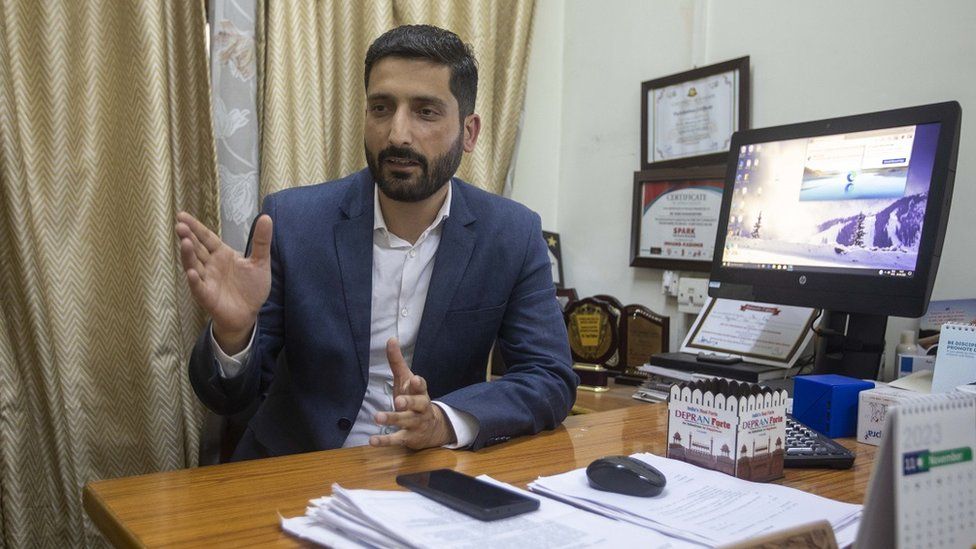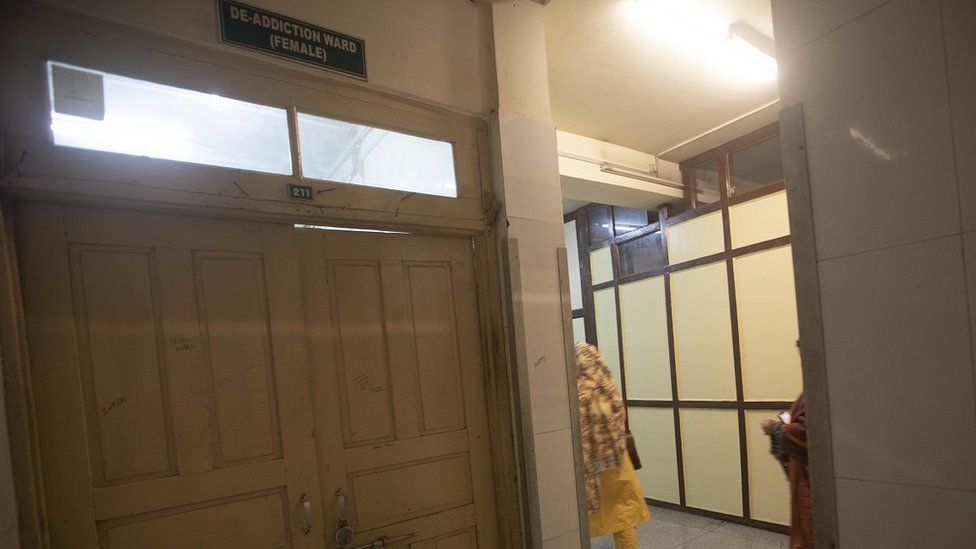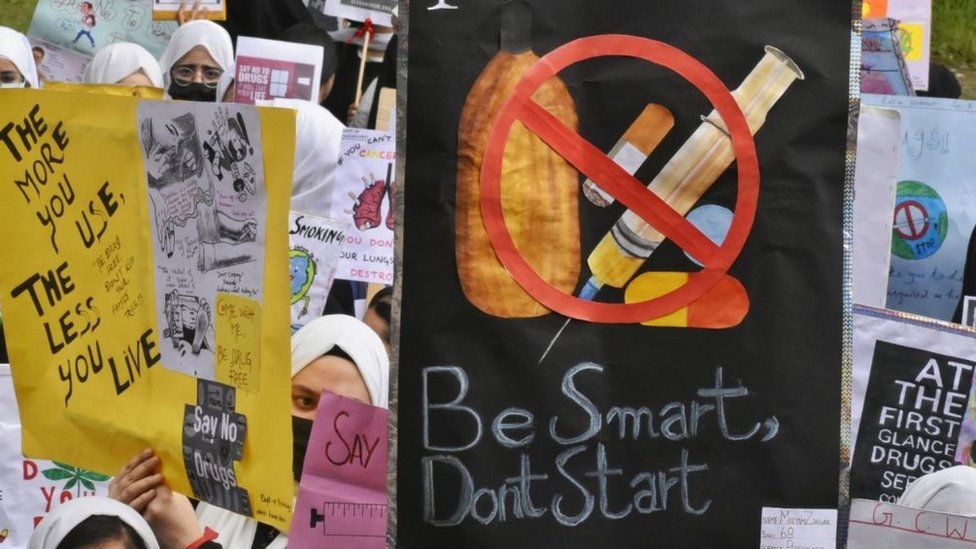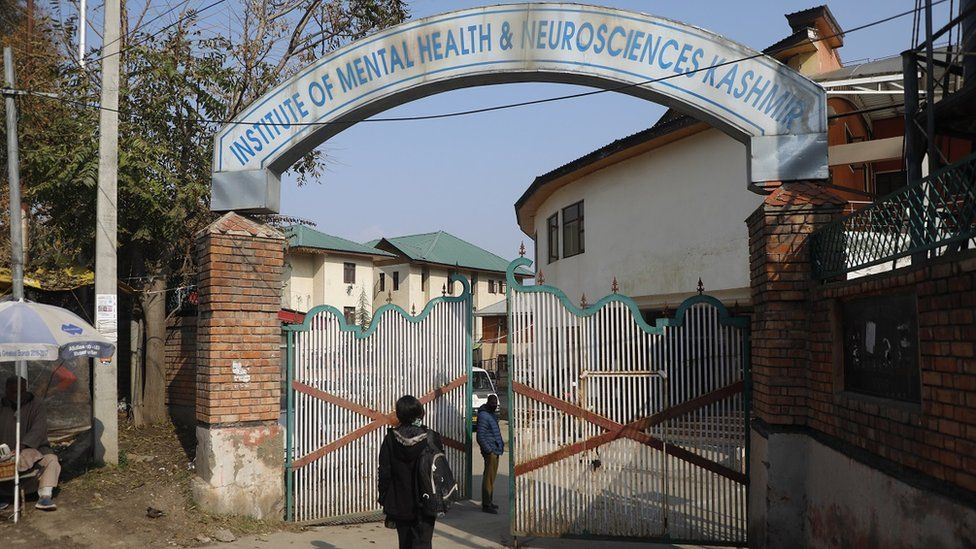On a soggy morning in May, a line of young men stretched around a drug rehabilitation facility in Srinagar, the capital of Indian-administrated Kashmir.
The Institute of Mental Health and Neurosciences (IMHANS), Kashmir's only government-run drug rehabilitation facility, had a large number of teenagers waiting in line with their parents to receive medications. The medications aid in easing their withdrawal symptoms and stop the spread of infectious diseases.
After examining the size of a young man's pupils, a doctor asks, "Did you take heroin again?
He responds, "Yes, I couldn't control myself.
Conflict and unrest have plagued the Himalayan region of Kashmir for many years. It is claimed in its entirety but only partially administered by nuclear-armed neighbors Pakistan and India, who have fought two wars over it. In Kashmir, there has been an insurgency against Indian rule since 1989 that has claimed tens of thousands of lives. Tensions were further heightened in 2019 when India split the former state of Jammu and Kashmir into two territories under federal control.
Currently, the area is dealing with a fresh crisis, according to officials, as drug abuse is wreaking havoc on young people's lives in Kashmir. Additionally, they claim that the use of hard drugs like heroin has increased significantly.
A federal minister informed the legislature in March that nearly a million people in Jammu and Kashmir, or about 8% of the region's population, use drugs of some description, such as cannabis, opioids, or sedatives. Doctors report a rise in the number of patients, despite the lack of comparable data from earlier.
We used to see 10-15 cases of drug addiction per day at our hospital up until ten years ago. We now see 150–200 cases per day. The psychiatrist and professor at IMHANS, Dr. Yasir Rather, calls this alarming.
The lack of jobs and the mental health problems brought on by residing in a conflict zone are just two reasons given by experts.

Top police officials have mentioned large amounts of illegal substances being seized in press conferences and have claimed to have found connections to Pakistan. They assert that the proceeds of drug trafficking are used to finance militancy in Kashmir; Pakistan has not formally reacted to this assertion. But some drug dealers told this reporter that they also get supplies from other Indian states, including Punjab and the nation's capital Delhi. .
In the area, drug abuse is not a recent issue. However, Dr. Yasir Rather notes that before heroin entered the picture, people would use marijuana or other therapeutic opioids.
In a survey conducted by the Jammu and Kashmir administration last year, more than 52,000 people in Kashmir admitted to using heroin (there hasn't been an elected government in the area since 2018). According to the study, a user spent an average of 88,000 rupees ($1,063.54; £860) per month to purchase the drug.
Since many people may be reluctant to admit their addiction or ask for help because of the stigma associated with drugs, the numbers are probably higher.
The government is aware of the severity of the issue and has taken a number of steps to address it, according to Dr. Mushtaq Ahmad Rather, director of health services in Kashmir.
More de-addiction facilities, however, where addicts can be admitted and receive ongoing treatment, according to experts, are urgently needed.
There are a few private institutions, but there are only two publicly accessible drug rehabilitation facilities in Kashmir, both of which are in Srinagar. One of these facilities is run by IMHANS, and the other by the police.
According to Dr. Mushtaq Rather, the government has also established Addiction Treatment Facility Centers (ATFCs) in every district. But ATFCs lack admission facilities, unlike de-addiction facilities. One doctor, a counselor, and a nurse treat patients in these modest clinics.
According to Dr. Mushtaq Rather, "These ATFC centers give patients free counseling, treatment, and medications.".

Patients from all over Kashmir have flocked to IMHANS, overwhelming the doctors there. While some drug users came in on their own accord, others were brought by their families. Despite a few female patients, the majority of the patients are men.
Danish Nazir (name changed), 23, a patient who has been at IMHANS for three weeks, declares, "This is a sweet poison that will destroy you.".
Businessman Mr. Nazir, who owns a store in Srinagar, claims he would almost daily purchase heroin with his earnings. But when his fiance learned that he had recently gotten engaged, she urged him to seek assistance. After Mr. Nazir has fully recovered, the couple has decided to wait to get married.
Another patient, a 15-year-old boy with barely any facial hair, claims that he first began using drugs with his friends.
He said, "They are readily available here.
According to some social activists, it is the government's job to break the drug supply chain.
According to Kashmir-based activist Syed Shakeel Qalandar, "the police and the administration need to act quickly on any inputs or information received about drug dealers.".
In response to a request for comment, Vijay Kumar Bidhuri, the divisional commissioner of Kashmir who oversees administrative matters, remained silent.

Text messages to Kashmir's police chief, Vijay Kumar, went unanswered as well. Between 2019 and 2022, more than 5,000 cases were registered under the anti-drug law, according to police records. Authorities have stated that they are carrying out significant operations against drug traffickers and the individuals who provide them with drugs. They are using strict laws like the Public Safety Act, which permits police to detain suspects for at least a year without a trial, in addition to laws that regulate the sale and use of narcotics, to crack down on drugs.
But combating drug abuse is not just the responsibility of the police. According to a senior police official who spoke to the BBC under the condition of anonymity, society must also speak up.
There are additional effects of drug abuse in addition to the serious physical and detrimental effects. Users occasionally share syringes, increasing their risk of contracting infections like hepatitis C, according to Dr. Yasir Rather.
In an effort to fund their addictions, people have been committing more theft and other crimes.
Despite the seriousness of the situation, individuals like Mr. Nazir are working very hard to reclaim their lives. In addition to expressing hope for others, he claims to be feeling better.
"Although you might initially find it challenging, if you're motivated, you can accomplish it. You're needed by your family, he said.
the YouTube channel for BBC News India. Click . here. to subscribe and watch our explainers, features, and documentaries.







